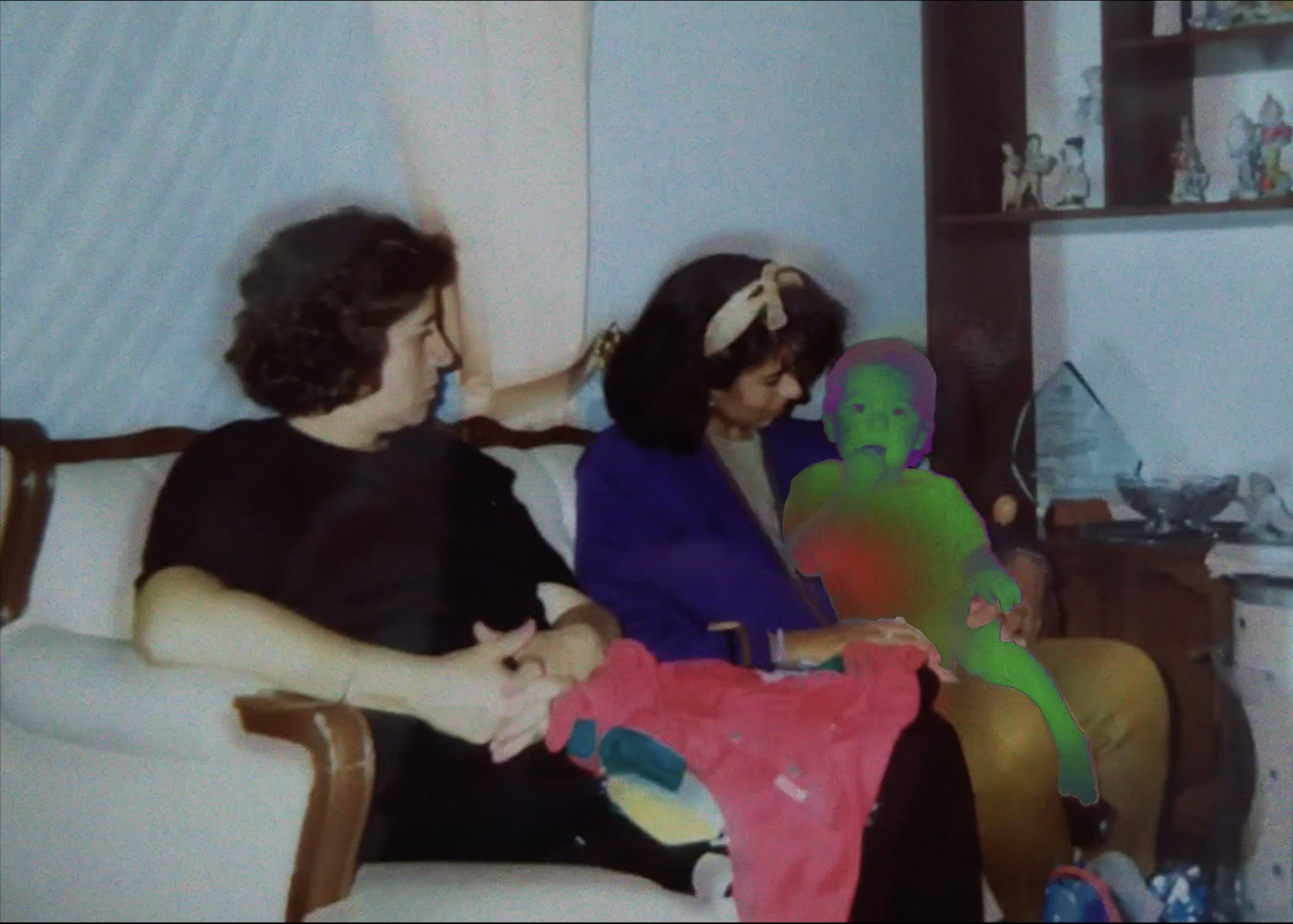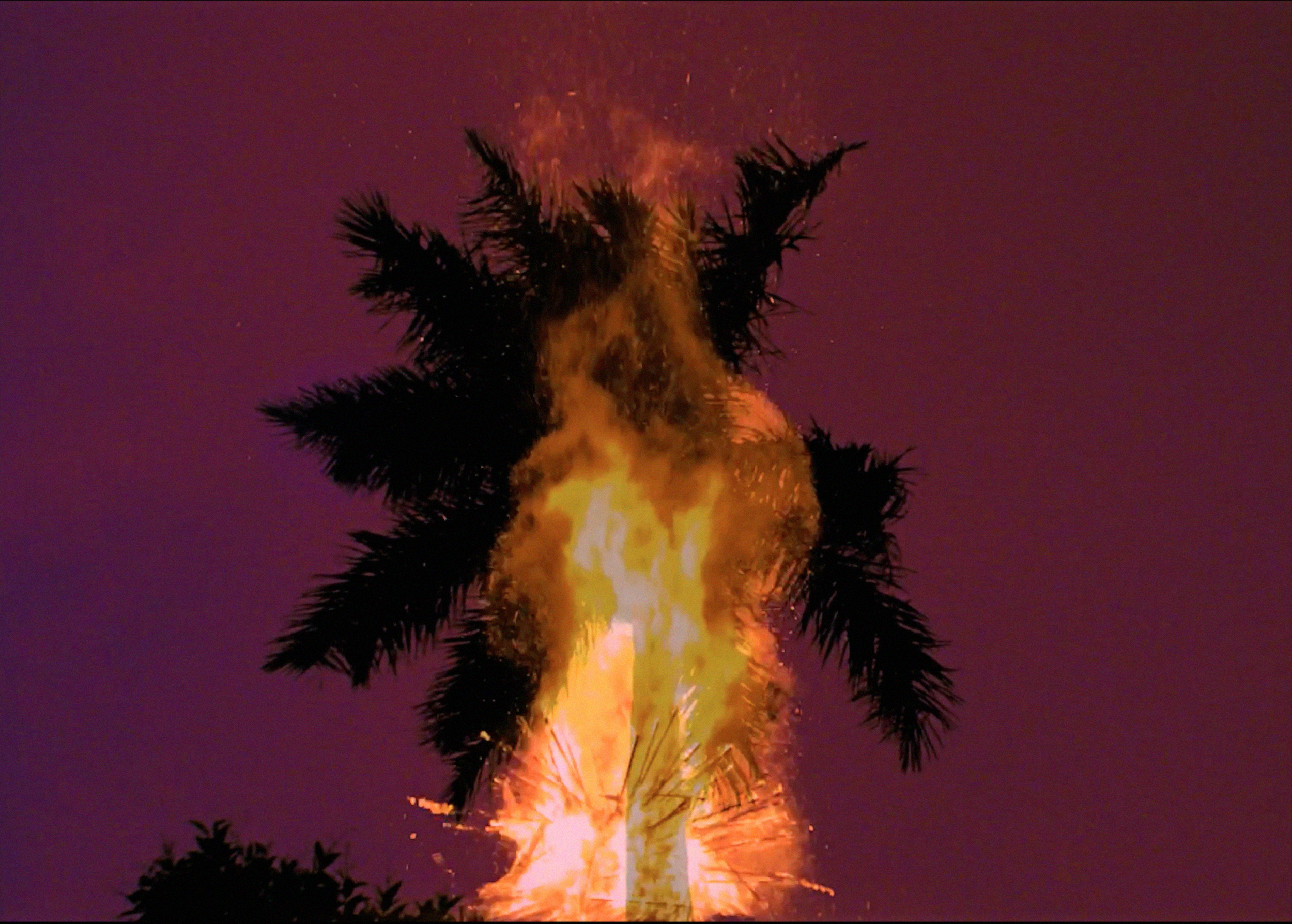Super(im)positions: subverting melodramatic representation through personal unpredictability.
With his artistic research Super(im)positions: subverting melodramatic representation through personal unpredictability, Emilio Santoyo explores the possibilities of using outdated melodramatic elements of cinematic representation in a new way, dissolving the intersection between the personal and the fictional as a tool for creating a redemptive act of filmmaking. He created the concept of the New Melodrama; a self-reflective genre deviation that, by acknowledging it’s perversity; aims to destroy melodramatic toxic knowledge, portraying a contemporary, complex, and personal way of feeling.
“By dissolving the intersection between the personal and the fictional, and by using a contemporary, polyphonic, and playful film language, I aim to propose a different form of melodrama. Perhaps one that, by acknowledging its perversity, can challenge its toxic knowledge, portraying a contemporary, complex, and personal way of feeling. A critical, boundary-pushing, and relevant melodrama of self-reflexive possibilities. I’m temporarily calling this genre deviation, this redemptive act of filmmaking and knowledge production proposal, the New Melodrama: a trojan horse that makes a valid critique of the genre, through the use of the very system that is being criticised.”

Watch the visual abstract (video) for the research here.
“My wound existed before me, I was born to embody it.” ― Joe Bousquet
-

The behaviour of broken hearts (installation)
4 screen video installation.
10 minutes (Loop).
16mm film, augmented reality, 3d scanning, video 6K transferred to HD. Plexiglas.
A four part audiovisual poem that reflects on the concept of melodramatic superimpositions, in the context of a romantic heartbreak.
Made in collaboration with Mei Liu, David Calderón, Valeryia Le and Malaz Usta.
-

Guidebook for the new melodramatic method (printed publication).
A publication for the Artistic Research “Super (im) positions: Subverting melodramatic representation through personal unpredictability” that examines in a personal way, the relation between cinema and life, heartbreak, melodrama in Latin America, the concept of superimposition, and the evolution of the genre, while also discussing methodologies, production innovations, and the role of collaboration in film creation.
Made in the frame and context of thr Master of Film Artistic Research - In and through cinema.
Netherlands Film Academy 2024

In the context of this research, I developed the feature film “Vera, Vera Vera (Or the behaviour of broken hearts)”.
Through an essayistic approach, the film blurs the lines between fiction and reality through an experimental fictional narrative. Using a wide range of capture formats and supports, and made in close collaboration with Mei Liu, David Calderón, Valerya Le, and Malaz Usta -who also participate as on-screen actors-, the film follows an invisible storyteller reflecting about a lost love, while contemplating at Vera, a young filmmaker living in Amsterdam, who attempts to overcome a depression by making a film about her romantic breakup. Meanwhile, in Mexico, Edu – Vera’s ex- edits a telenovela, while thinking about getting her back. A melodramatic kaleidoscope of love and violence unfolds, where fiction and reality become indistinguishable.